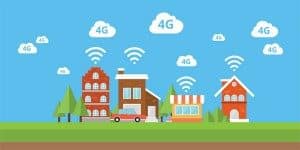FCC to Consider A Proposal to Support Anytime, Anywhere Learning
Education Domain Blog
 The promise of next generation education models driven by blended and online learning can only be realized when all students, regardless of geography and social economic status, have equitable access to anytime, everywhere broadband connectivity.
The promise of next generation education models driven by blended and online learning can only be realized when all students, regardless of geography and social economic status, have equitable access to anytime, everywhere broadband connectivity.
Learning should not stop with the ring of a class bell or the close of a school day. As our world continues to offer new possibilities and tools for teaching, learning, communicating and collaborating, we must ensure access for all students — in all learning environments.
Since 1985, the Lifeline program has provided a discount on phone service for qualifying low-income consumers to ensure that all Americans have the opportunities and security that phone service brings, including being able to connect to jobs, family and emergency services. Chairman Tom Wheeler of the Federal Communications Commission (FCC) has set forth a proposal to update the Lifeline Program to include subsidies for low-income families to ensure affordable access to broadband.
The proposal the FCC will consider includes a $9.25 per-month subsidy for stand-alone broadband service or bundled voice and data-service packages. If passed, the program will play a critical role in advancing access to learning opportunities at home. The vote is scheduled for March 31, 2016, and the proposal is expected to pass.
The modernization of the Lifeline program will take a significant step forward to provide students with improved Internet connectivity at home. By increasing access to high-quality educational opportunities available today, students will gain the skills they need to be successful in college and careers.
iNACOL supports the FCC’s efforts in updating the Lifeline program. The iNACOL 2015 Federal Policy Frameworks highlight: “There remains a lack of adequate broadband access for many students at home and in their communities, often called the ‘homework gap.’ The FCC should leverage the existing Lifeline program to close this gap for low-income households,” and recommend that the program be updated.
iNACOL submitted a letter of support to Chairman Wheeler, applauding his proposal, and urging the Commission to vote yes on March 31.
To learn more:
- Read: iNACOL Federal Policy Frameworks 2015, Senate Introduces the Digital Learning Equity Act to Improve Opportunities for All Students
- Engage: Tweet with #EdPolicy, #PersonalizedLearning, #CompetencyEd, #EDtech
- Save the Date on October 25-28, 2016: The iNACOL 2016 Blended and Online Learning Symposium.
What, if anything else, would you do to update the Lifeline program? Join the conversation using #Lifeline and #DigitalDivide on Twitter. Let us know by contacting the iNACOL Center for Policy Advocacy or reaching out to us on Twitter:
- iNACOL: @nacol
- President and CEO Susan Patrick: @SusanDPatrick
- Vice President of Federal and State Policy Maria Worthen: @mariaworthen
- State Policy Director Dale Frost: @DaleKFrost
- Policy Manager Susan Gentz: @shoing
UPDATE: The FCC approved, through a 3-2 vote, a proposal to expand the federal Lifeline program to include subsidies for broadband service for low-income households.